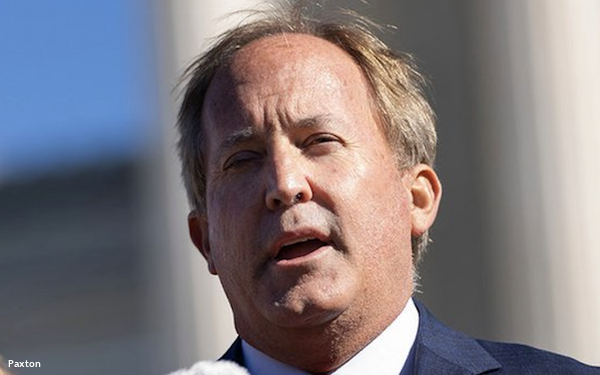
Siding against Yelp, a federal
appellate court has rejected the company's petition to reconsider a decision that allowed Texas to proceed with a lawsuit against the review site over warning labels on so-called “crisis
pregnancy centers.”
In a brief order issued Wednesday, the 9th Circuit Court of Appeals said none of the judges in the circuit requested a vote on Yelp's request to
revisit the case.
The court's move comes in a dispute dating to September 2023, when Texas Attorney General Ken Paxton said he intended to sue Yelp for allegedly telling users
that crisis pregnancy centers “typically provide limited medical services and may not have licensed medical professionals onsite."
Yelp later revised its notifications to state:
“Crisis Pregnancy Centers do not offer abortions or referrals to abortion providers.”
advertisement
advertisement
Several days after Paxton made the announcement, Yelp asked a federal judge to
block the attorney general from proceeding with a lawsuit. The company argued that Paxton sought to target “truthful speech fully protected by the First Amendment.”
At around the same time that Yelp filed its suit against Paxton, he sued Yelp in Bastrop County District Court for
allegedly violating a state consumer protection law -- the Deceptive Trade Practices Act, which outlaws deceptive business practices.
Paxton alleged that Yelp's prior warning
labels falsely disparaged crisis pregnancy centers, which, he said, “resource centers provide significant care and counseling to pregnant women” and “commonly provide significant
medical services, and have licensed medical professionals onsite.”
(A state court judge Bastrop County dismissed Paxton's suit against Yelp last year, but Paxton has appealed that ruling
to the Court of Appeals for the Fifteenth District of Texas in Austin.)
Paxton also sought dismissal of Yelp's lawsuit, arguing that Supreme Court precedent prohibits federal
judges from interfering with state prosecutions.
U.S. District Court Judge Trina Thompson in the Northern District of California agreed with Paxton and rejected Yelp's request
to block his lawsuit.
She said in a written ruling that even though there are some exceptions to the principle that federal courts can't block state law enforcement actions,
Yelp's dispute with Paxton wasn't covered by those exceptions.
Yelp appealed Thompson's ruling to the 9th Circuit, arguing that Paxton's suit was brought in bad faith, and
therefore falls within an exception to the rule prohibiting federal interference with prosecutions.
A three-judge panel of the appellate court ruled against Yelp in May,
writing that they couldn't conclude that Paxton's suit was "so facially meritless as to connote bad faith.”
Yelp recently asked the appellate court to reconsider, arguing
that Thompson shouldn't have dismissed its complaint without allowing it to attempt to prove that Paxton acted in bad faith.
“Yelp's evidentiary showing was plainly
sufficient to warrant discovery: the dispositive question whether Paxton acted in good faith is at the very least 'controverted,'” the company writes.
Yelp provided
several reasons why it believes Paxton brought the lawsuit was in bad faith. Among others, the company says the Texas Deceptive Trade Practices Act only covers commercial speech, and that Yelp's
warning labels were “unequivocally” not commercial speech.
The company also said Paxton brought charges without first investigating whether any Texans were misled
by the labels.
Outside groups including the American Civil Liberties Union of Northern California backed Yelp's request, arguing in a friend-of-the-court brief that the
appellate decision could "seriously erode" First Amendment rights.
The groups argued that the panel judges defined "bad faith" too narrowly, adding that the ruling could allow
state officials to bring pretextual enforcement actions "to target or harass individuals for exercising their constitutional rights."
"Despite an obviously improper motivation,
federal courts would be powerless to act so long as the state official could show even a bare chance of success on the merits," the groups contended.
A Yelp spokesperson said the company is
disappointed with the appellate court's decision.
“Yelp’s consumer notice at issue was truthful, accurate, and intended to help people make informed decisions about
reproductive healthcare options," the spokesperson stated. "We remain committed to vigorously defending our constitutionally protected right to provide users with accurate information.”